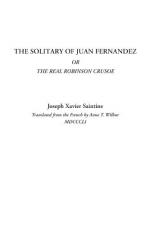After having thus painfully passed in review all of which his exile from the world had deprived him, he exclaimed:
’To live alone, what a martyrdom! to live useless to all, what a disgrace! What! does no one need me? What! are generosity, devotion, even pity, all those noble instincts by which the soul reveals itself, for ever interdicted to me? This is death, death premature and shameful! Ah! why did I not remain at the foot of that precipice?’
With downcast head, he remained some time overwhelmed with the weight of his discouragement; then, suddenly, his brow cleared up, a sinister thought crossed his mind; he ran to his cabin, seized his gun. This last shot, this last charge of powder and lead, which he has preserved so preciously as a final resource, it will serve to put an end to his days! Well, is not this the most valuable service he can expect from it? He examines the gun; the priming is yet undisturbed; he passes his nail over the flint, leans the butt against the ground, takes off the thick leather which covers his foot, that he may be able to fire with more certainty. But during all these preparations his resolution grows weaker; he trembles as he rests the gun against his temples; that sentiment of self-preservation, so profoundly implanted in the heart of man, re-awakens in him. He hesitates—thrice returning to his first resolution, he brings the gun to his forehead; thrice he removes it. At last, to drive away this demon of suicide, he fires it in the air.
Scarcely has he thus uselessly thrown away this precious shot before he repents. He approaches the shore; it is at the moment when the tide is at its lowest ebb; the sun touches the horizon. Selkirk lies down on the damp beach:—’When the wave returns,’ said he, ’if it be God’s will, let it take me!’
Slumber comes first. Exhausted with emotion, yielding to the lassitude of his mind, he falls asleep. In the middle of the night, suddenly awakened by the sound of the advancing wave, he again flees before the threat of death; he no longer wishes to die. Once in safety, he turns to contemplate that immense sea which, for an instant, he had wished might be his tomb.
By the moonlight, he perceives as it were a long and slender chain, which, gliding upon the crest of the waves, directs itself towards the shore. By its form, by its copper color, by the multiplicity of its rings, unfolding in the distance, Selkirk recognizes the sea-serpent, that terror of navigators, as he has often heard it described.
The mind of the solitary is a perpetual mirage.
Filled with terror, he flies again; he conceals himself, trembling, in the caverns of his mountains; he has become a coward; why should he affect a courage he does not feel? No one is looking at him!
The next day, instead of the sea-serpent, he finds on the beach an immense cryptogamia, a gigantic alga, of a single piece, divided into a thousand cylindrical branches, and much superior to all those he has observed in the Straits of Sunda. The rising tide had thrown it on the shore.




